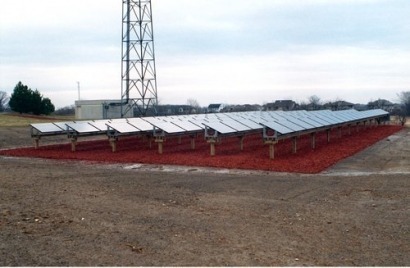
The EU Trade Commissioner Karel De Gucht has confirmed reports that the deal reached with China over the EU-China solar trade will create a minimum price for Chinese solar imports. This is likely to be €0.56 per Watt although according to the Solar Trade Assocation (STA) it may not yet be finalised. In addition, there is a likely to be a cap on the volume of solar equipment imported from China, set at 7GW per annum.
Given that last year the market for solar in Europe was around 17GW, the Chinese market share according to these new proposals will mean that less half the EU market will be met by Chinese imports. Furthermore, the deal does not seem to make any allowances for growth and De Gucht has also made clear that German manufacturers will have to compete with others, including from Japan and Korea, as well as further Chinese imports albeit with a levy of 47.6 percent applied. In response, the German manufacturers that brought the case may consider legal action.
The STA has consistently acted to oppose solar tariffs of 47 percent threatened by the European Commission (EC) on the basis that the levies present a major threat to the large UK solar industry and to UK manufacturers reprocessing Chinese cells into innovative solar PV products. Although the STA believes that the domestic solar market will emerge relatively unscathed, it believes that it will be important to consider future cuts to the Feed-in Tariff under the ‘FITs degression’ mechanism.
This is because solar panels make up an increasingly small share of the total installation costs. The cost of inverters is also reducing modestly. However, the economics of large-scale solar in the UK are already extremely tight and existing projects may very well be made uneconomic by the minimum price of €0.56/W. The situation will be made worse by the continuing reduction in the Renewables Obligation (RO), the main support scheme for large-scale solar. The RO will be reduced to just 1.4 ROCs in April 2014 while the Feed-in Tariff system is already failing to work for most non-domestic solar in the UK. This will be compounded by the EU-China deal.
“Thank God we've moved a long way from the original proposals, which were truly appalling and without justification” said STA Chief Executive Paul Barwell. “However, we’re concerned the deal reached by China and the Commission will ultimately achieve little, as German manufacturers are unlikely to be able to compete long-term with the Asian giants. Meanwhile in the short term, the proposals could do real damage to the UK downstream solar industry and to national deployment levels. They leave the UK non-domestic solar industry in a very difficult position, when in fact the UK is one of the major EU growth markets, and ought to remain so.”
The STA has been urging the government to fix the UK FiT scheme for non-domestic solar by amending the proposal to call for a shorter duration for the deal, fluctuating or lowering minimum prices and allowing for volume growth and cost reductions, otherwise the UK policy framework will be out of kilter with real world costs. The government therefore needs to adjust its solar support framework in order to avoid reductions in solar deployment in the UK which will occur despite the fact that solar is invariably cheaper than other energy sources such as offshore wind, biomass, CHP or wave and tidal.
The STA will be gathering further feedback from its members on pricing and commenting in further detail in due course on the policy implications of the proposal.
Further information:

